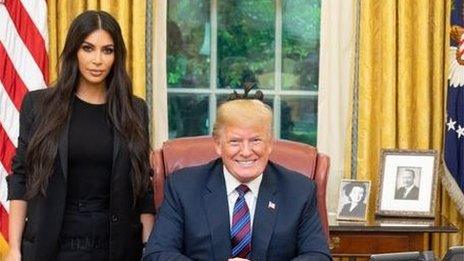Trump pardons ex-soldier convicted of killing Iraqi prisoner
- Published
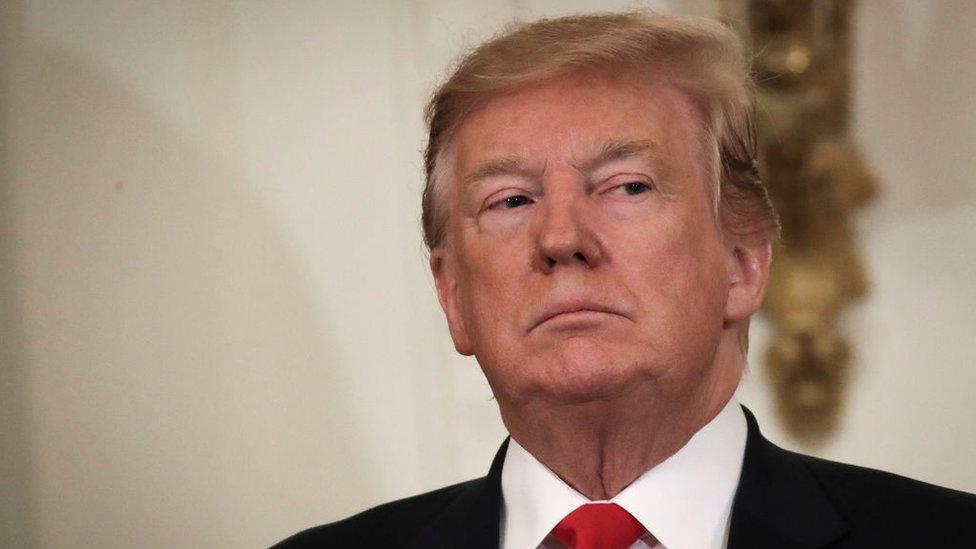
Mr Trump has pardoned a US ex-soldier who killed Iraqi prisoner
US President Donald Trump has granted a full pardon to a former soldier who was convicted in the 2009 killing of an Iraqi man in American custody.
First Lt Michael Behenna was sentenced to 25 years in prison for the murder of Ali Mansur, a suspected Al Qaeda terrorist shot during questioning.
Mr Trump signed a full pardon of Mr Behenna, who has served five years for unpremeditated murder in a combat zone.
Mr Behenna, released on parole in 2014, has said he acted in self-defence.
The statement from White House press secretary Sarah Sanders on Monday announcing the pardon cites "broad support from the military, Oklahoma elected officials, and the public" for Mr Behenna, a "model prisoner" while behind bars.
Ms Sanders also notes "concern" on behalf of the US Army's appellate court regarding how Mr Behenna's claim of self-defence was handled.
This marks Mr Trump's eighth pardon since taking office, as well as two commuted sentences.
According to court documents, Mr Behenna and his platoon took Mr Mansur to a remote part of the Iraqi desert to question him about a previous attack on American soldiers. During the interrogation, Mr Behenna stripped Mr Mansur naked before shooting him in the head and chest.
The case attracted attention across the US, drawing added focus to the treatment of detainees by the US military abroad.

Giving soldiers a pass
Analysis by Tara McKelvey, BBC White House reporter
Mr Trump's pardon to Michael Behenna, a former US army lieutenant, is part of a larger effort to extend clemency towards soldiers accused of crimes during wartime.
Republican lawmakers such as Duncan Hunter of California have encouraged the president to intervene in cases against military men, and the president has embraced their cause.
He has shown support for soldier who was charged in the killing of a man in Afghanistan in 2010, for example, describing the soldier as a "'U.S. Military hero'".
In addition, Trump tweeted about Edward Gallagher, a special operations chief accused of murder, saying he was moved to better quarters (from a brig to a barracks) while awaiting trial, a decision the president said was made in "honour of his past service to our Country".
Allow X content?
This article contains content provided by X. We ask for your permission before anything is loaded, as they may be using cookies and other technologies. You may want to read X’s cookie policy, external and privacy policy, external before accepting. To view this content choose ‘accept and continue’.

Previous presidents have shown mercy towards convicted criminals, including former soldiers, but Mr Trump takes a special interest in the military cases and has intervened in a more consistent and aggressive way than his predecessors.

Mr Behenna had gained the support of the Oklahoma attorney general Mike Hunter.
Mr Hunter sent several letters - as late as April 2019 - to the Trump administration seeking a pardon for the former soldier.
In one letter, dated 7 February 2018, Mr Hunter wrote that Mr Behenna did not deserve to be labelled a "murderer".
According to the White House, dozens of Patriot Guard motorcycle riders met Mr Behenna to escort him back to his home in Oklahoma upon his release.
More recently Mr Trump granted pardons for two Oregon cattle ranchers whose sentence for arson led armed militiamen to seize control of a wildlife refuge in 2016.
Mr Trump has been accused of using his pardon power to address what he sees are political wrongs.
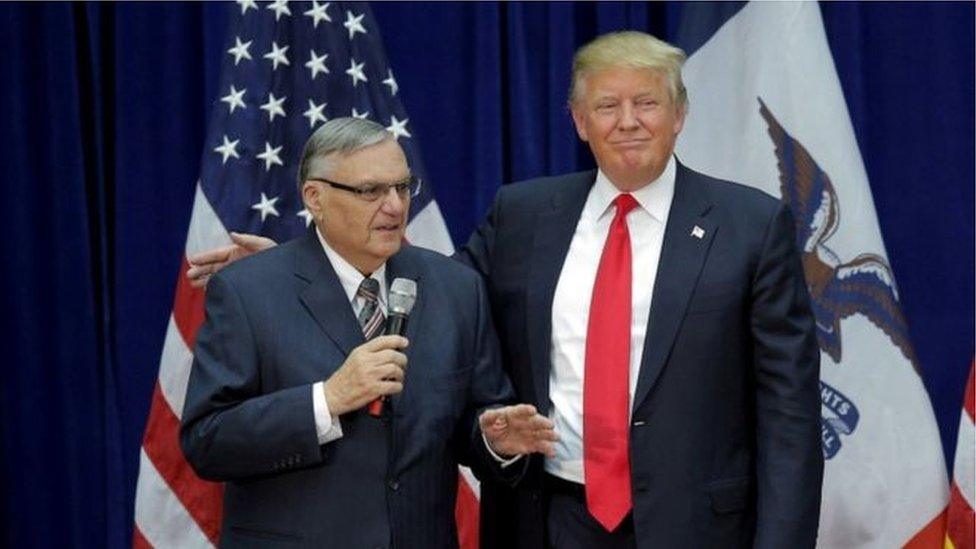
Mr Trump drew criticism for his 2017 pardon of ex-sheriff Joe Arpaio
In 2017, he pardoned ex-Arizona sheriff Joe Arpaio, who had been convicted of criminal contempt, after he defied a court order to stop traffic patrols targeting suspected immigrants.
Other pardons have included Lewis "Scooter" Libby, former Vice-President Dick Cheney's chief of staff, who was convicted of lying about leaks to the media, and Jack Johnson, boxing's first black heavyweight champ, convicted in 1913 of taking his white girlfriend across state lines.
- Published26 August 2017
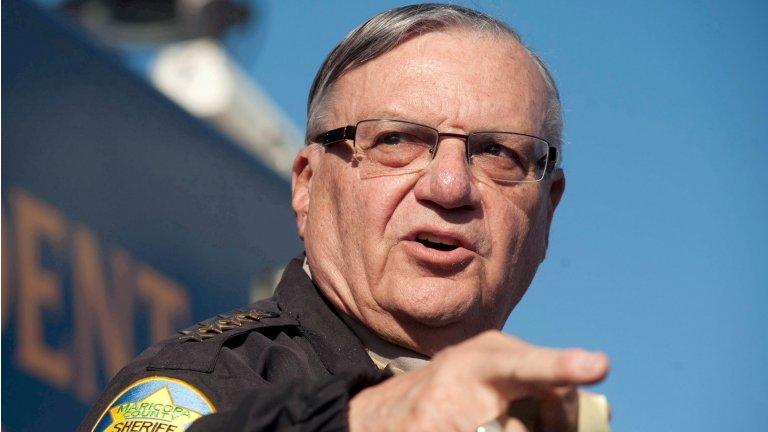
- Published10 July 2018
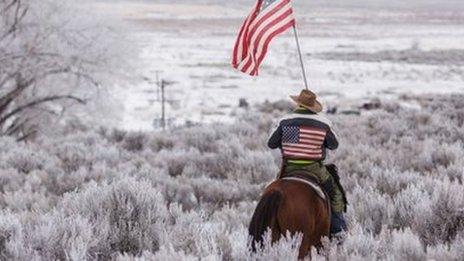
- Published31 May 2018
